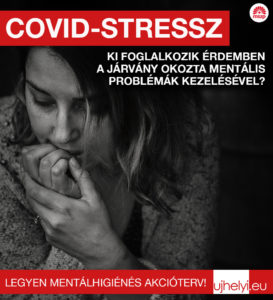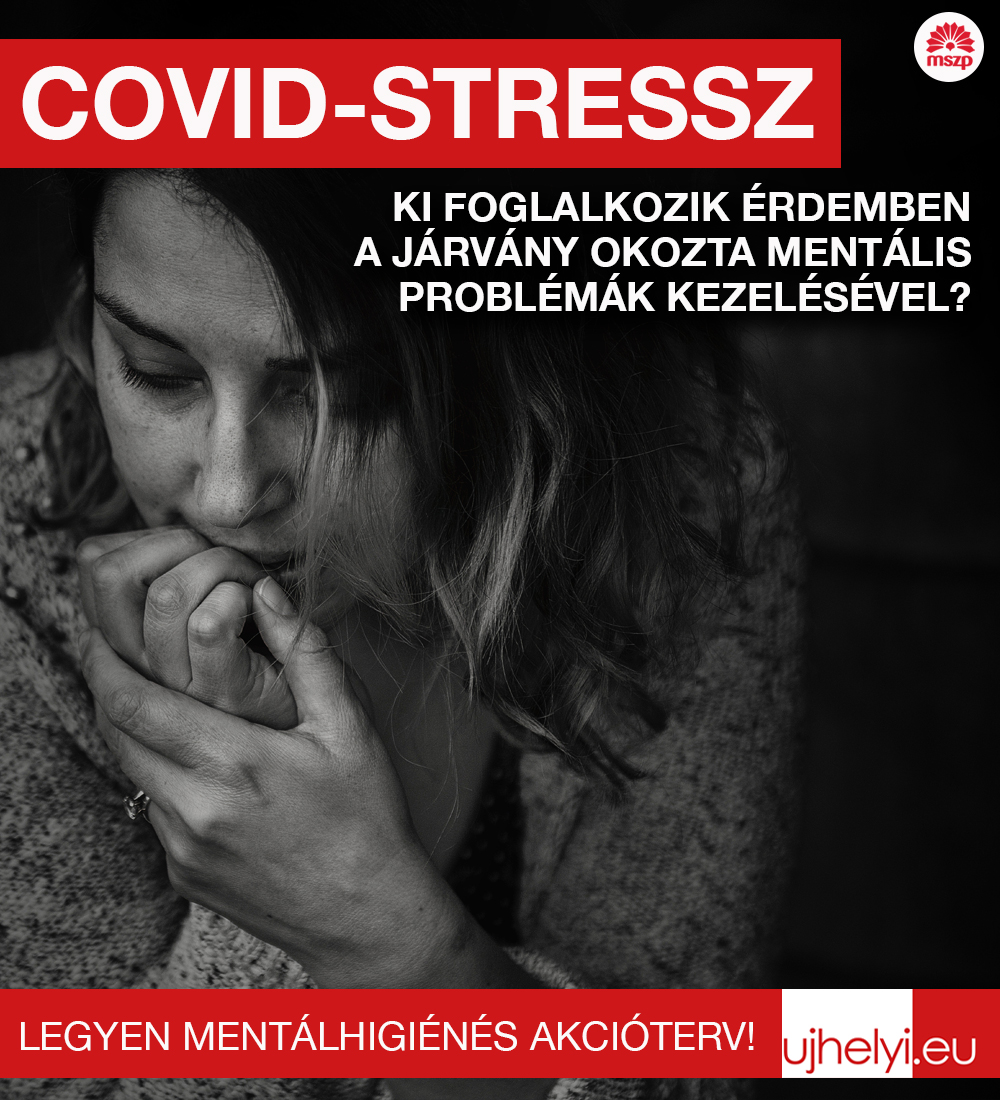Published: 3.3.2021
 Once again I feel compelled to write to you about something that is rarely talked about (and what does not even occur to the state leadership), despite the fact that it would require substantive action and also on the government’s part.
Once again I feel compelled to write to you about something that is rarely talked about (and what does not even occur to the state leadership), despite the fact that it would require substantive action and also on the government’s part.
In the context of the severe COVID pandemic, we focus primarily on the physical symptoms and effects of the disease, although numerous studies have proven that there are serious mental health problems associated with the coronavirus; some of which we cannot even assess for the time being.
As a member of the European Parliament’s Public Health Committee, I am in active, almost day-to-day contact with health professionals who are drawing attention in growing numbers to the dangerous impacts of the so-called covid stress and the long-lasting psychological effects of the coronavirus. Based on the health data available to me as a politician responsible for the field, it can be said in general that the incidence of depression, anxiety and post-traumatic stress disorder has significantly increased in recent months in Europe and thus in Hungary as well.
According to a survey carried out in many European Member States, for example, 58% of people have symptoms of psychological disorders due to restrictions and lifestyle changes, such as sleep disturbances, lack of energy, anxiety, fear, but one in ten people have already reported anxiety panic attacks. The same survey showed that people with mental health problems most often do not turn to a specialist but try to solve the situation together with their family members and friends instead: barely 18 per cent of them sought a general practitioner, and only 10 per cent actually sought an actual mental health professional to deal with the problem.
All available related research confirms that one of the most vulnerable groups is the current teenagers (the covid generation) whom the virus forces to stay between barriers and walls at the worst possible stage of their lives; even experts cannot say at present how this will impact them in the long run; it is possible that the more serious mental and the related physical problems will only occur much later.
Just imagine for example how many young Hungarian teenagers had to spend the switch between primary and secondary school in obligatory quarantine, with the physical minimization of social contacts. Not to mention the unreasonable closing of all facilities when in fact there are a number of institutions (zoos, open-air theme parks, cinemas, theatres, open terraces of restaurants) that could effectively operate under cautious and thoughtful restrictions, providing some opportunity for recreation.
For the time being, the Hungarian government has brushed off concerns raised about this by stating that school psychologists are available if needed, but I am convinced that, in fact, much more would be needed. A mental health action plan needs to be developed as soon as possible, specifically to address and provide coordinated help in case of mental injuries caused by the virus situation, social structures changed as a result of the epidemic, confinement, fear of infection, reduced capacity to work due to the economic crisis or psychological difficulties due to lost jobs.
The network of school psychologists should be expanded with an appropriate range of mental health professionals, while concrete solutions and initiatives should be launched by the government, in particular to provide effective and meaningful support to the younger generations, by involving professionals, organizing online events, involving and training teachers and workers in the sectors concerned.
As an MEP who also focuses on the health sector, I wanted to get to know the National Mental Health Program, which was commissioned by EMMI (Ministry of Human Capacities) in 2018, but so far neither its content nor its fate has become particularly public. Whether by rethinking this government program, which I , for one, am not yet familiar with, or as part of a separate government action plan, substantive steps must be taken as soon as possible to preserve mental health.
We’ll defeat the virus, but if we don’t pay attention to its other long-lasting impacts, it can stay with us for a long time to come. I am confident that the government will finally pay sensible attention to the opposition proposals and take the necessary steps in this regard as well.
dr. István Ujhelyi
Member of the European Parliament
28 February, 2021
